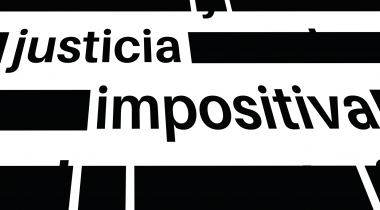George Turner ■ Access to Swiss banking information for developing countries hangs in the balance

The attack on the commitment by Switzerland to share data on bank accounts with some developing countries has failed, for now. However, the issue of which restrictions should be put in place in data sharing is still a live one, opening the door for Swiss politicians to curtail this vital measure to combat corruption and tax evasion.
In August we reported on how the far-right SWP party in Switzerland was launching an attack on the automatic exchange of banking information by Switzerland with countries they branded as ‘corrupt’. The party was seeking to further postpone the implementation of automatic information exchange with 41 countries, mainly developing ones. That attempt has been blocked.
“All information exchanged is subject to the confidentiality rules and other safeguards provided for in the Convention, including the provisions limiting the use of the information exchanged and, to the extent needed to ensure the necessary level of protection of personal data, in accordance with the safeguards which may be specified by the supplying Competent Authority as required under its domestic law and listed in Annex C” (emphasis added).
Examine the criteria a country would need to satisfy to start getting access to data under the automatic information exchange…The council has also proposed to submit a report to Parliament in order to ensure that the necessary requirements, including on confidentiality and data protection, are met by the concerned countries before transmission of the data.
What precisely this will mean is anyone’s guess. It could mean throwing up obstacles for countries seeking to receive data on their citizens’ holdings in Swiss bank accounts. It could also mean that some countries are excluded from exchanging information altogether. The SWP was previously attempting to exclude countries from automatic information exchange which do not meet a certain level on Transparency International’s Corruption Perception Index. (You can read more on what we believe are narrow and unhelpful definitions of corruption here.)
This in itself would be a highly retrograde step. As we have pointed out many times at the TJN, Swiss banks and other secrecy havens rely on corruption for business. The relationship between so called ‘corrupt’ countries and secrecy jurisdictions like Switzerland is symbiotic; without the money made from corrupt deals and tax evasion, the revenue to the Swiss banking industry would quickly dry up.
Perhaps this is one reason why some elements of the banking industry are so keen to prevent countries getting information that would help them attack corruption, thereby ensuring a steady flow of customers through the doors of the banks of Geneva, Zurich and Lugano.
Photo by Pedro Szekely on Flickr
Related articles

The secrecy enablers strike back: weaponising privacy against transparency
Privacy-Washing & Beneficial Ownership Transparency
26 March 2024

New Tax Justice Network podcast website launched!

El secreto fiscal…tiene cara de mujer: January 2024 Spanish language tax justice podcast, Justicia ImPositiva

Tax Justice Network Arabic podcast #73: ملخص 2023

Get rich cheating in our (educational) tax dodgers version of monopoly

New report on how to fix beneficial ownership frameworks, so they actually work

The Tax Justice Network’s most read pieces in 2023

Overturning a 100 year legacy: the UN tax vote on the Tax Justice Network podcast, the Taxcast


